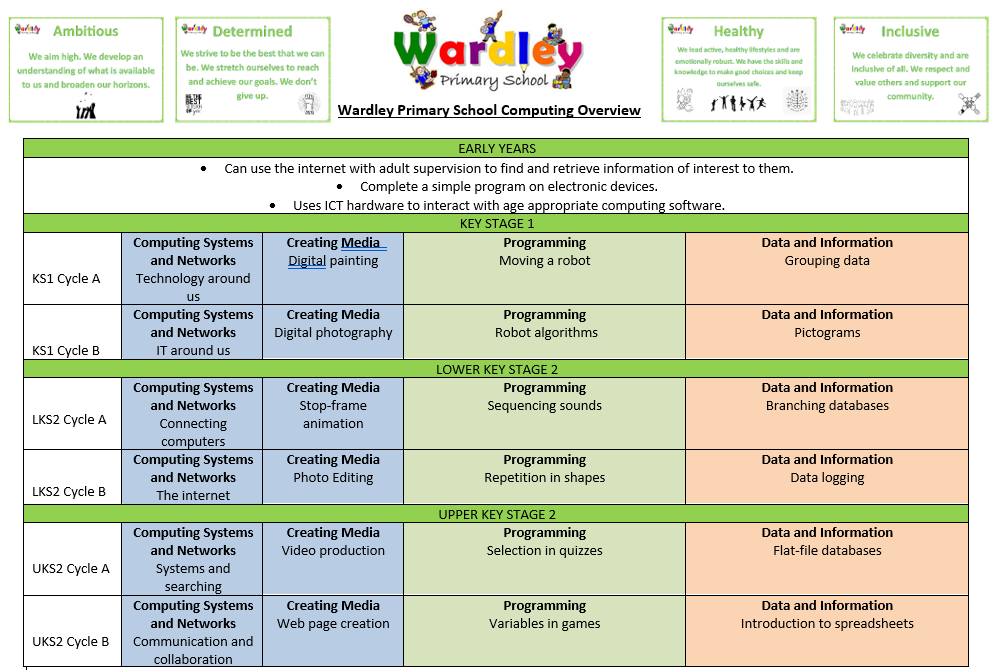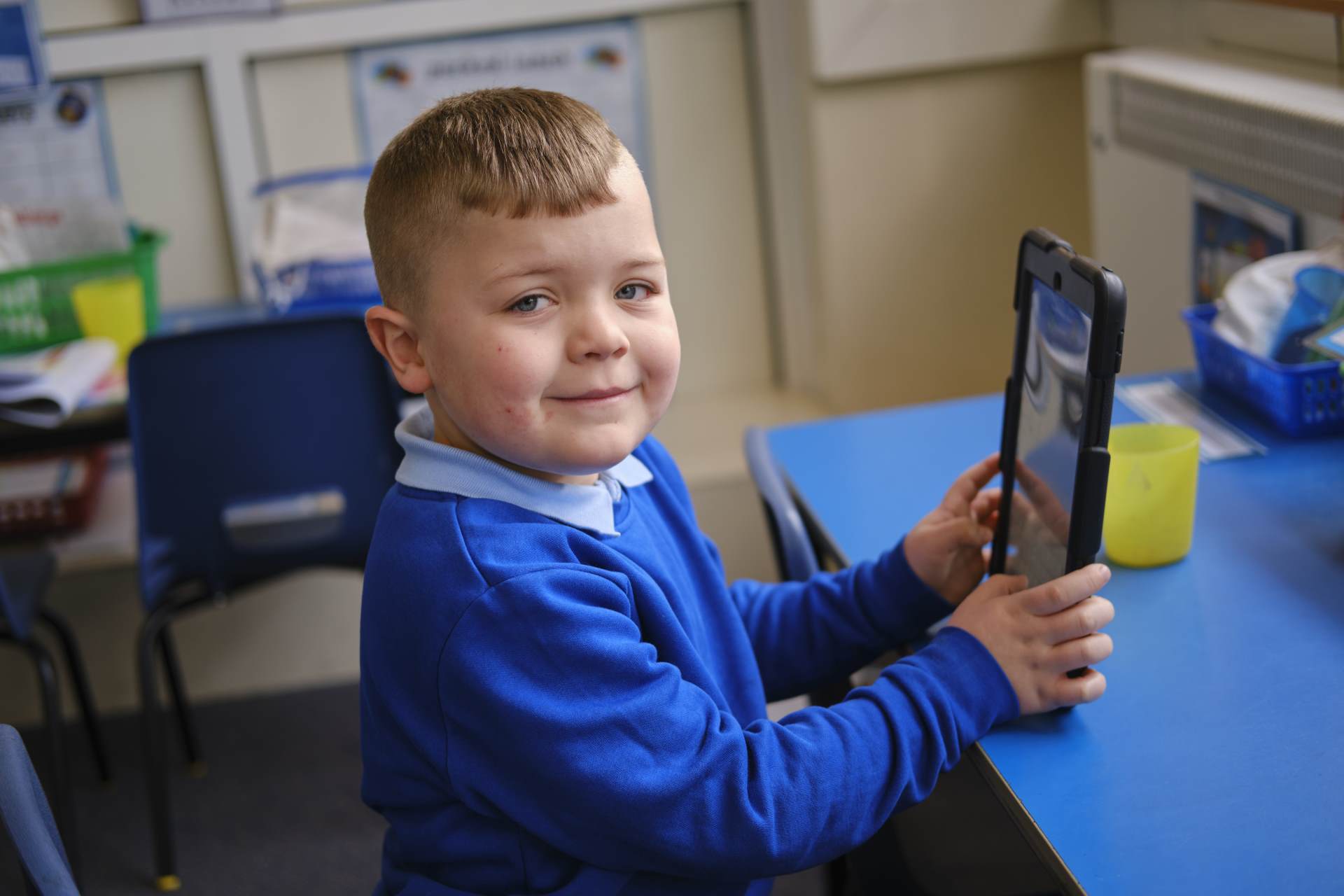Computing
At Wardley Primary School, we aim to prepare our children to be lifelong learners who can draw on a range of skills when meeting new challenges. Due to the fact that technology is such an important part of everyday life, it is essential that all pupils gain the confidence and ability that they need in computing, to prepare them for the challenge of a rapidly developing and changing technological world. Children will be given opportunities to use different technologies in order to enhance and extend their learning across the curriculum whilst developing motivation and social skills. Our vision is to enrich the experience of all pupils by providing an environment without learning boundaries, where computing opportunities can be explored in safety and confidence.
Pupils should become confident, competent, and independent users of a range of computing equipment, able to apply their skills in a many different situations in order to achieve specific goals. They will see technology as an essential, engaging and effective way to achieve success and be able to call upon their skills and experiences in order to do this.
As a school, we have mapped out the curriculum expectations for computing into a progression document including both knowledge and skills. This ensures content coverage across each phase:

Online Safety Overview - Project Evolve
National Curriculum Aims
The national curriculum for computing aims to ensure that all pupils:
- can understand and apply the fundamental principles and concepts of computer science, including abstraction, logic, algorithms and data representation
- can analyse problems in computational terms, and have repeated practical experience of writing computer programs in order to solve such problems
- can evaluate and apply information technology, including new or unfamiliar technologies, analytically to solve problems
- are responsible, competent, confident and creative users of information and communication technology.
Key stage 1
Pupils should be taught to:
- understand what algorithms are; how they are implemented as programs on digital devices; and that programs execute by following precise and unambiguous instructions
- create and debug simple programs
- use logical reasoning to predict the behaviour of simple programs
- use technology purposefully to create, organise, store, manipulate and retrieve digital content
- recognise common uses of information technology beyond school
- use technology safely and respectfully, keeping personal information private; identify where to go for help and support when they have concerns about content or contact on the internet or other online technologies.
Key stage 2
Pupils should be taught to:
- design, write and debug programs that accomplish specific goals, including controlling or simulating physical systems; solve problems by decomposing them into smaller parts
- use sequence, selection, and repetition in programs; work with variables and various forms of input and output
- use logical reasoning to explain how some simple algorithms work and to detect and correct errors in algorithms and programs
- understand computer networks including the internet; how they can provide multiple services, such as the world wide web; and the opportunities they offer for communication and collaboration
- use search technologies effectively, appreciate how results are selected and ranked, and be discerning in evaluating digital content
- select, use and combine a variety of software (including internet services) on a range of digital devices to design and create a range of programs, systems and content that accomplish given goals, including collecting, analysing, evaluating and presenting data and information
- use technology safely, respectfully and responsibly; recognise acceptable/unacceptable behaviour; identify a range of ways to report concerns about content and contact.



